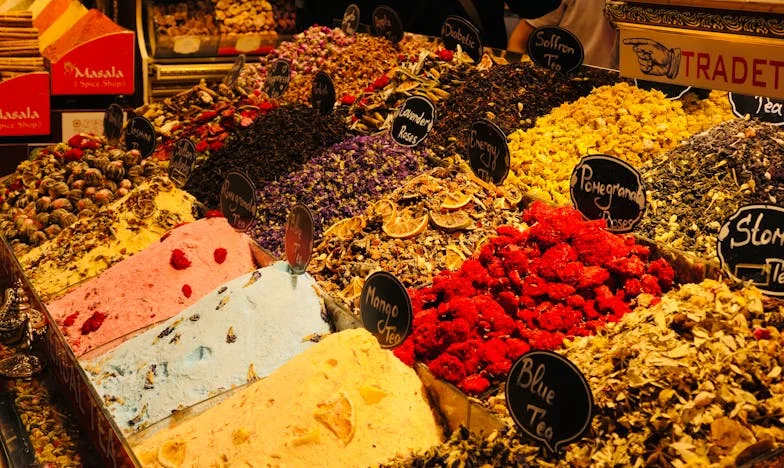When Grandma Chose Not Us
“Why didn’t Grandma come to Emily’s recital again?” my youngest, Sophie, asked, her voice trembling as she pressed her nose to the cold glass. She watched the neighbor’s kids laughing with their grandmother on the front lawn across the street, their giggles slicing through our quiet house like a knife. I swallowed hard, fighting back tears.
I wanted to scream, to break something, to call my mother and demand an answer I knew she wouldn’t give. Instead, I knelt beside Sophie, brushing a strand of hair behind her ear. “She’s just busy, honey. Maybe next time.” I lied, hating myself for it. How do you explain to a child that their grandmother chose someone else’s family over her own?
Six months earlier, it had all come to a head. My mom, Linda, had always been the centerpiece of every holiday, every birthday, every scraped knee. When my husband Mark lost his job and our mortgage teetered on the edge, I turned to her for support, for comfort. Instead, I found her sitting in the living room—her face tight, her eyes darting to the clock.
“I can’t help, Jen. Not this time.”
I stared at her, disbelief flooding my veins. “Mom, we just need a little help with the girls. I have job interviews, and Mark’s working night shifts at the warehouse. Please.”
She shook her head, her hands wringing the hem of her cardigan. “I’ve started babysitting for the Parkers across the street. They pay well, and I—I need to think about my future, too.”
My jaw dropped. “So you’d rather take care of strangers’ kids than your own granddaughters?”
Her lips pressed into a thin line. “It’s not about that, Jennifer. I need something for myself now. I can’t always be your safety net.”
The argument that followed left scars deeper than either of us admitted. Words like “selfish” and “ungrateful” were thrown like grenades. She walked out that evening, her footsteps echoing down the front path. She didn’t look back.
Days turned into weeks, then months. I saw her across the street sometimes, laughing with the Parker kids, braiding little Molly’s golden hair, pushing Sam on the swing. Each time, I felt a mix of rage and envy so potent it made my stomach ache. Emily and Sophie stopped asking about her at first, but the silence between us grew heavier.
Mark tried to fill the void, but even his patience wore thin. “Maybe she just needs space,” he’d say, rubbing my shoulders as I cried at night. “She’s getting older. People change.”
“But why them, Mark? Why not us?”
He never had an answer.
The Parker family became the talk of the neighborhood. Their parties spilled onto the street, their Christmas lights brighter than anyone else’s. My mom was always there, a fixture at their celebrations, her laughter ringing out above the crowd. I stopped going to the mailbox before noon, just to avoid seeing her. I started resenting not just her, but the whole world for moving on without us.
It all came to a head one rainy afternoon, when Emily came home from school in tears.
“Why doesn’t Grandma love us anymore?” she sobbed, her backpack slumping to the floor. “Molly said Grandma Linda is her grandma now.”
I knelt and hugged her, my own tears blurring the room. “That’s not true, sweetheart. She loves you. She’s just… confused right now.”
But I didn’t believe it myself. The truth was, I felt abandoned. I felt like we weren’t enough.
My sister, Rachel, called from Chicago and tried to make sense of it. “Jen, maybe Mom’s just scared. Maybe she’s lonely. You know how she always put everyone else first—maybe she just snapped.”
“Doesn’t she miss her grandkids? Doesn’t she miss us?”
“I’m sure she does. But sometimes people break in ways we can’t see.”
I hung up, emptier than before.
Then, one evening, as I was folding laundry, the doorbell rang. Sophie peeked out the window. “It’s Grandma!”
I froze. My hands shook as I opened the door. There she stood, umbrella in hand, rain dripping from her hair, her eyes red and tired. For a moment, neither of us spoke.
“I heard Emily had a recital. I’m sorry I missed it.”
I clenched the doorframe, my voice tight. “You missed a lot more than that.”
She nodded, looking down at her shoes. “I know. I’m sorry.”
Sophie ran to her, wrapping her arms around my mother’s waist. Emily hung back, her eyes wary.
“Can I come in?” Mom asked softly.
I hesitated, then stepped aside. The girls crowded around her, hungry for the love they’d been denied. I watched from the kitchen, unsure if I could forgive.
Over tea, she tried to explain. “I was tired, Jen. After your dad died, I poured everything into you and Rachel, then the girls. When the Parkers asked for help, I thought it’d be a fresh start. I didn’t realize it would hurt you so much.”
I stared at her, anger and longing warring inside me. “You’re my mother. You’re their grandmother. We needed you.”
Tears spilled down her cheeks. “I know. I’m so sorry. I want to fix it, if you’ll let me.”
The girls looked at me, hope flickering in their eyes. Could I open the door again, knowing she might leave? Could I forgive her for choosing someone else, even for a while?
That night, after she left, I lay awake, turning it over in my mind. Families break in silent ways—sometimes through neglect, sometimes through choices that make sense only to the one who makes them. I wanted to heal, but I didn’t know how.
Now I watch my girls play in the yard, their laughter softer, guarded. I wonder if love can ever be enough to mend what’s broken.
Have you ever been hurt by someone you trusted most? How do you forgive, when the pain still lingers?
